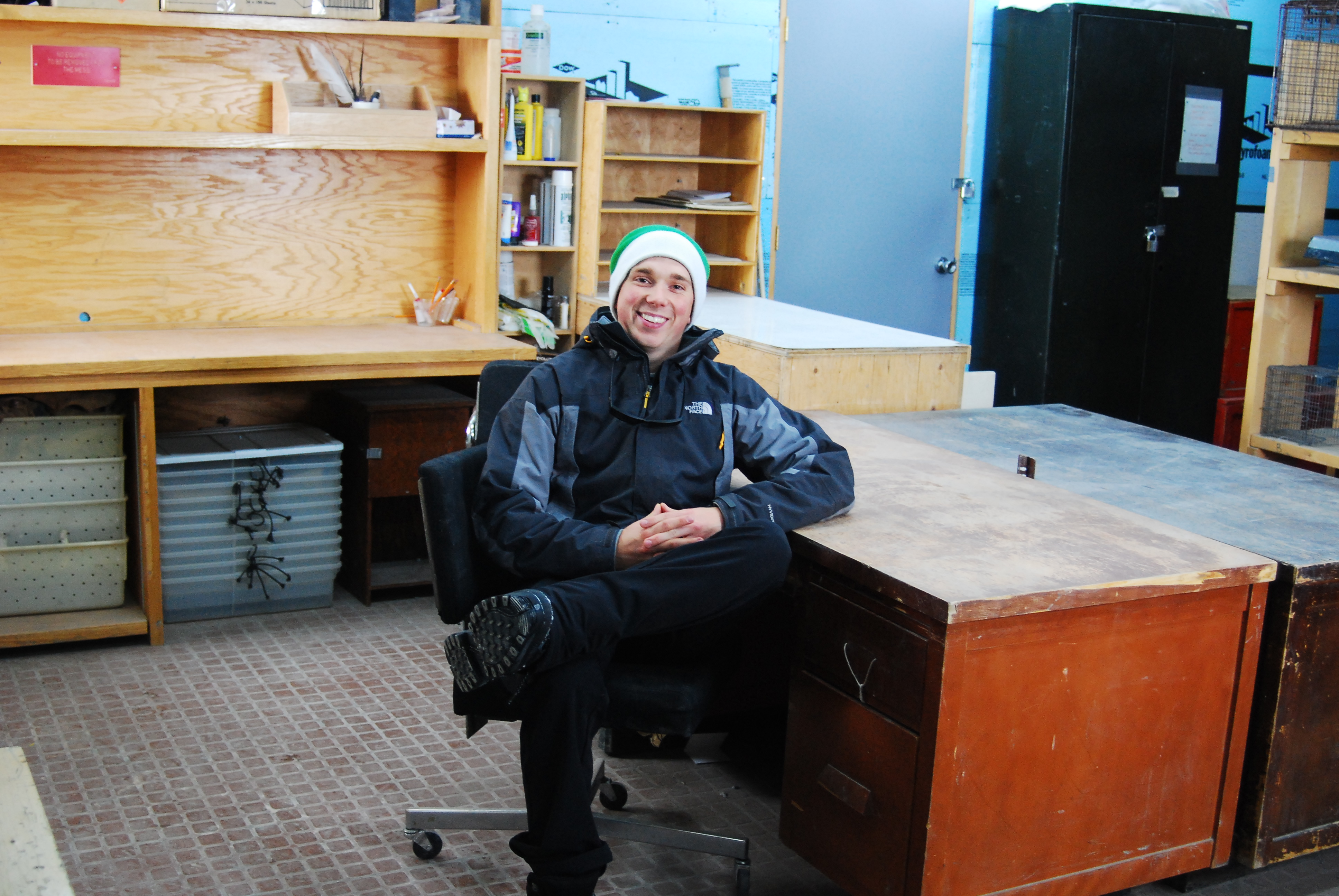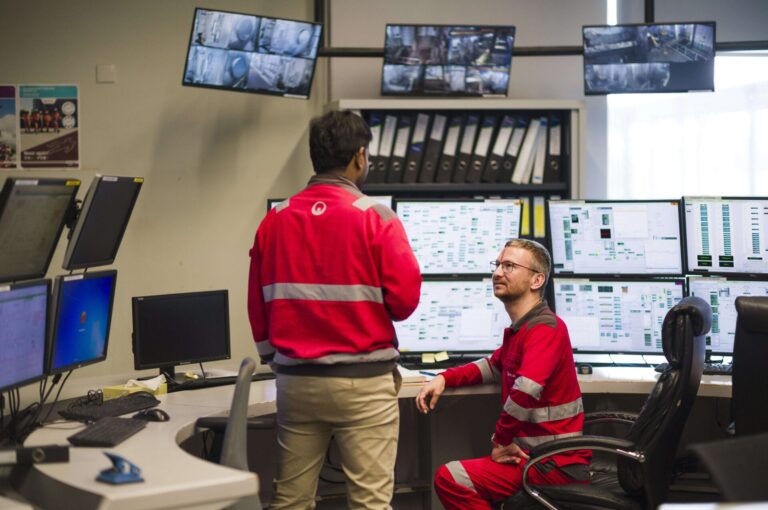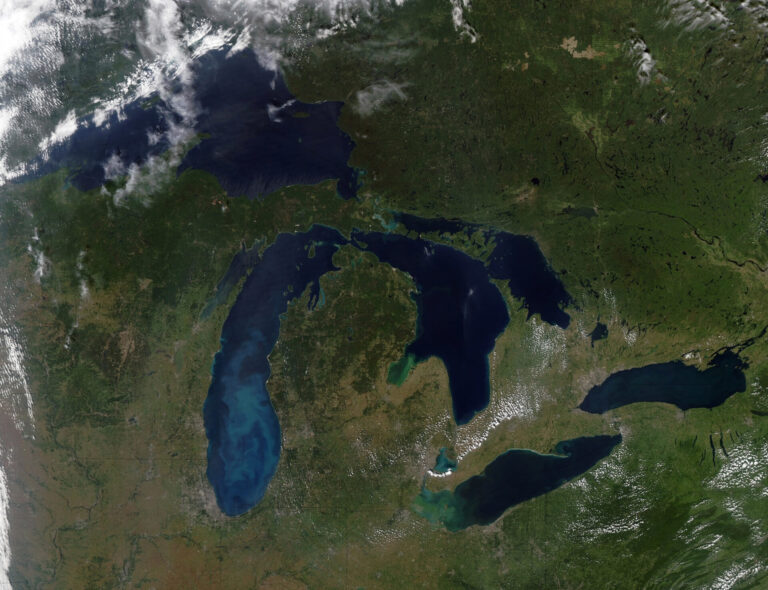Water has always fascinated Marcus Sheppard. After taking a course in hydrology at Wilfrid Laurier University, he looked to Sir Sandford Fleming College’s Environmental Technology program to learn more about water quality testing, analysis, drinking water, and wastewater treatment.
As a student at Fleming, Sheppard worked part time for the Centre for Alternative Wastewater Treatment’s (CAWT’s) laboratory, where he gained experience with a number of projects including a floating island study, constructed wetland maintenance, sampling and testing. After graduating from the program, he became a laboratory technician with the CAWT.
The Centre has done extensive work with wetland treatment systems in the Canadian Arctic, with a presence in Alert during the summer months since 2010. When they needed to send someone north for the summer of 2012, Sheppard was offered the opportunity to continue the study.
“I jumped at the chance,” says Sheppard, who saw the opportunity to expand his field experience, as well as to travel to one of the most remote places in the world. “The next thing I knew I was heading north for the summer.”
Sheppard’s work in Alert was split between setting up and running a laboratory and field work on a wetland system. “I took weekly samples to analyze in the laboratory, then sent them to Ontario for further analysis. I set up the lab to complete testing for pH, dissolved oxygen, conductivity, total coliforms and E. coli, biochemical oxygen demand, and carbonaceous biochemical oxygen demand,” he says.
“As far as field work, I spent a large amount of time recording flow paths, deploying and monitoring temperature probes, surveying the system in order to update a digital elevation map, taking soil samples, analyzing soil moisture content completing vegetation analysis, and transplanting vegetation throughout the system.”
Sheppard says working up north was a unique and eye-opening experience. “Coming from a southern Ontario summer to -20°C weather and 24 hours of sunlight required some adjustment. The work also called for long days but was extremely rewarding.”
To new researchers, he gives this advice: “Use every situation possible to actively acquire knowledge and new skills. Furthering your education is always beneficial, but it doesn’t stop there.”
Sheppard says he’s inspired by his colleagues—research scientists, technologists and technicians—who are still learning about wastewater and water treatment on a daily basis. “In such an expansive and fast-moving field, it’s crucial to always be open to improving and growing your skill set,” he adds.
In the future, Sheppard aims to continue to work in alternative and small-scale wastewater treatment technologies, especially for lesser-developed rural communities. WC









